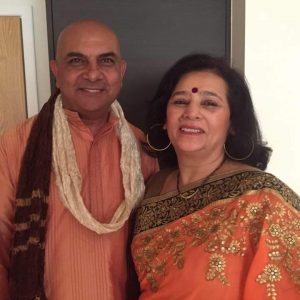
A property mogul in Lilongwe, Mr Praphul Lakhani has come under fire after pictures of his gay relationship have been circulated online.
Mr Lakhani, a Malawian of Asian origin, from Hindu religious faith, who has been married to his wife for several years, says he has been honest with himself on his sexual orientation.
He is seen in intimate pictures with a black boy.

Lakhani is CEO of Watt Consultancies and hopes legal liberalisation for gays in the country.
Malawi is a deeply conservative society where most people oppose homosexuality.
Gay relationship – Mr Lakhani and his boyfriend
The country’s penal code expressly criminalises same-sex relations as an “unnatural offence”, punishable by up to 14 years in prison.
A grouping of homosexuals in Lilongwe have welcomed Lakhani’s declaration of his sexual orientation as “a major step forward to increase LGBTQ (Lesbian, gay, bisexual, transgender and queer) acceptance and inclusion in the country.”
The group wants the country to scrap decades-old anti-gay laws.
Activists have been waiting since 2013 for the courts to set a date for a hearing to repeal the anti-gay laws.
Lakhani – I am entitled to enjoy the same rights being enjoyed by the heterosexual community.
Most of the 18 million people in Malawi are Christian or Muslim, whose religious education often describes homosexuality as taboo or a sin.
In 2016, about 3,000 Christians marched through Blantyre and Lilongwe, carrying signs saying “Homosexuality is abomination”.
What does Hinduism say about homosexuality?

Homosexuality is unacceptable to some Hindus. Hinduism teaches that the ‘natural’ thing to do is for men and women to marry and have children. Those who go against this natural relationship are violating their own dharma.
Other Hindus believe that homosexuality does have a place in the community, because of ancient carvings in Indian temples that show men and women having homosexual sex. Some Hindus believe that the Kama Sutra permits homosexuality though the Kama Sutra is not a scripture, and is not widely known by Hindus.
Other Hindu teachings suggest that homosexuals should not inherit property. However, many people agree that this is based on the fact that they do not procreate and does not amount to religious teaching against homosexuality itself.
What does this mean in practice?

Mr Lakhani was married to a woman before turning to gay
Most Hindu communities favour heterosexual marriage because it leads to the forming of family units. Some Hindus would consider sex within a same-sex relationship to be unacceptable.
Many Hindu communities deal with the issue largely by ignoring it. There is an assumption that people will marry and have children and other relationships, whilst they may exist, are not openly acknowledged. However, homosexual relationships are present in Hindu society, and some Hindus might argue that love is an eternal force which can be felt by a couple of the same sex.



